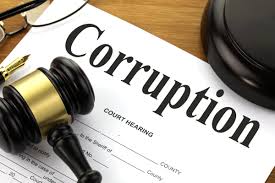Corruption is a pervasive issue that affects both businesses and governments worldwide. It undermines trust, distorts markets, and hampers economic growth. In recent years, there has been a growing recognition of the need for robust anti-corruption strategies to combat this problem effectively. This article explores the best practices for implementing anti-corruption strategies in business and government, with a focus on how Al Mithaq Institute’s specialized courses can equip professionals with the necessary skills to tackle corruption effectively.
Understanding Corruption
Definition and Types of Corruption
Corruption can be defined as the abuse of entrusted power for private gain. It manifests in various forms, including bribery, embezzlement, nepotism, and fraud. Understanding the different types of corruption is crucial for developing effective anti-corruption strategies.
The Impact of Corruption
Corruption has far-reaching consequences. It erodes public trust in institutions, distorts competition, and leads to inefficient allocation of resources. In the business world, corruption can result in legal penalties, reputational damage, and loss of investor confidence. For governments, corruption undermines governance and hinders development.
Anti-Corruption Strategies in Business
Developing a Robust Compliance Program
A comprehensive compliance program is the cornerstone of any anti-corruption strategy. It involves establishing policies, procedures, and controls to prevent, detect, and respond to corrupt practices. Key components of a compliance program include:
- Code of Conduct: A clear and concise code of conduct that outlines the organization’s commitment to ethical behavior and zero tolerance for corruption.
- Risk Assessment: Regular risk assessments to identify and mitigate corruption risks.
- Training and Awareness: Ongoing training programs to educate employees about anti-corruption policies and procedures.
- Whistleblower Mechanisms: Secure and anonymous channels for employees to report corrupt practices without fear of retaliation.
Implementing Strong Internal Controls
Internal controls are essential for preventing and detecting corruption. These controls include:
- Segregation of Duties: Ensuring that no single individual has control over all aspects of a transaction.
- Approval Processes: Establishing clear approval processes for financial transactions and contracts.
- Regular Audits: Conducting regular internal and external audits to identify and address potential vulnerabilities.
Promoting a Culture of Integrity
Creating a culture of integrity is critical for the success of any anti-corruption strategy. This involves:
- Leadership Commitment: Demonstrating a strong commitment to ethical behavior from the top down.
- Ethical Decision-Making: Encouraging employees to make decisions based on ethical considerations rather than personal gain.
- Recognition and Rewards: Recognizing and rewarding employees who demonstrate integrity and ethical behavior.
Engaging with External Stakeholders
Collaboration with external stakeholders, including suppliers, customers, and regulators, is essential for combating corruption. This can involve:
- Due Diligence: Conducting thorough due diligence on business partners and third parties to ensure they adhere to anti-corruption standards.
- Transparency: Promoting transparency in business dealings and financial reporting.
- Advocacy: Advocating for stronger anti-corruption laws and regulations.
Anti-Corruption Strategies in Government
Strengthening Legal Frameworks
A robust legal framework is essential for combating corruption in government. This includes:
- Anti-Corruption Laws: Enacting and enforcing comprehensive anti-corruption laws that criminalize bribery, embezzlement, and other corrupt practices.
- Whistleblower Protection: Providing legal protections for whistleblowers who report corruption.
- Asset Declarations: Requiring public officials to declare their assets to prevent illicit enrichment.
Enhancing Transparency and Accountability
Transparency and accountability are key to preventing corruption in government. Strategies to enhance transparency and accountability include:
- Open Data: Making government data publicly available to increase transparency and enable public scrutiny.
- E-Government: Implementing e-government initiatives to reduce opportunities for corruption and improve service delivery.
- Independent Oversight: Establishing independent oversight bodies to monitor government activities and investigate allegations of corruption.
Promoting Ethical Leadership
Ethical leadership is crucial for fostering a culture of integrity in government. This involves:
- Ethics Training: Providing ethics training for public officials to reinforce the importance of ethical behavior.
- Role Modeling: Ensuring that leaders at all levels of government demonstrate ethical behavior and set a positive example for others.
- Accountability Mechanisms: Implementing mechanisms to hold public officials accountable for corrupt practices.
Engaging Civil Society and the Media
Civil society and the media play a vital role in combating corruption by holding governments accountable and raising public awareness. Strategies to engage civil society and the media include:
- Public Awareness Campaigns: Conducting public awareness campaigns to educate citizens about the negative impacts of corruption and the importance of reporting corrupt practices.
- Media Freedom: Ensuring that the media has the freedom to investigate and report on corruption without fear of retaliation.
- Civil Society Partnerships: Collaborating with civil society organizations to promote transparency and accountability in government.
The Role of Education in Combating Corruption
Importance of Anti-Corruption Education
Education is a powerful tool in the fight against corruption. It equips individuals with the knowledge and skills needed to recognize and resist corrupt practices. Anti-corruption education can also foster a culture of integrity and ethical behavior.
Al Mithaq Institute’s Anti-Corruption Courses
Al Mithaq Institute offers a range of specialized courses designed to equip professionals with the skills needed to combat corruption effectively. These courses cover various aspects of anti-corruption, including legal frameworks, compliance programs, and ethical leadership. By enrolling in these courses, professionals can gain a deeper understanding of corruption and learn practical strategies for preventing and addressing corrupt practices.
Diploma in Financial and Administrative Anti-Corruption
This course provides a comprehensive overview of anti-corruption strategies in the financial and administrative sectors. Participants will learn about the legal frameworks governing anti-corruption, risk assessment techniques, and best practices for implementing compliance programs.
Diploma in Anti-Corruption Law
This course focuses on the legal aspects of anti-corruption, including the drafting and enforcement of anti-corruption laws. Participants will gain a thorough understanding of the legal frameworks governing anti-corruption and learn how to apply these frameworks in practice.
Diploma in Ethical Leadership and Governance
This course emphasizes the importance of ethical leadership in combating corruption. Participants will learn about the principles of ethical leadership, strategies for promoting a culture of integrity, and the role of leadership in preventing corrupt practices.
Case Studies: Successful Anti-Corruption Initiatives
Case Study 1: Singapore’s Anti-Corruption Strategy
Singapore is widely recognized for its success in combating corruption. The country’s anti-corruption strategy is based on a combination of strong legal frameworks, effective enforcement, and a culture of integrity. Key elements of Singapore’s strategy include:
- Corrupt Practices Investigation Bureau (CPIB): An independent agency responsible for investigating and prosecuting corruption cases.
- Strict Penalties: Severe penalties for corrupt practices, including imprisonment and fines.
- Public Awareness: Public awareness campaigns to educate citizens about the negative impacts of corruption and the importance of reporting corrupt practices.
Case Study 2: The United Nations Convention against Corruption (UNCAC)
The UNCAC is a global framework for combating corruption. It provides a comprehensive set of measures for preventing and addressing corruption, including:
- Preventive Measures: Measures to prevent corruption, such as promoting transparency, strengthening legal frameworks, and enhancing public sector integrity.
- Criminalization and Law Enforcement: Provisions for criminalizing corrupt practices and strengthening law enforcement efforts.
- International Cooperation: Mechanisms for international cooperation in the investigation and prosecution of corruption cases.
Case Study 3: The Role of Civil Society in Combating Corruption in India
Civil society organizations in India have played a crucial role in combating corruption. One notable example is the India Against Corruption movement, which mobilized millions of citizens to demand stronger anti-corruption measures. Key achievements of the movement include:
- Public Awareness: Raising public awareness about the negative impacts of corruption and the importance of ethical governance.
- Legal Reforms: Advocating for legal reforms, including the establishment of an independent anti-corruption ombudsman.
- Grassroots Mobilization: Mobilizing citizens at the grassroots level to demand accountability and transparency from public officials.
Best Practices for Implementing Anti-Corruption Strategies
Leadership Commitment
Leadership commitment is essential for the success of any anti-corruption strategy. Leaders must demonstrate a strong commitment to ethical behavior and set a positive example for others. This involves:
- Ethical Leadership: Promoting ethical leadership at all levels of the organization.
- Accountability: Holding leaders accountable for corrupt practices and ensuring that they face consequences for unethical behavior.
- Transparency: Promoting transparency in decision-making and financial reporting.
Risk Assessment and Management
Regular risk assessments are crucial for identifying and mitigating corruption risks. This involves:
- Identifying Risks: Identifying potential corruption risks, such as bribery, embezzlement, and fraud.
- Mitigating Risks: Implementing measures to mitigate identified risks, such as strengthening internal controls and conducting regular audits.
- Monitoring and Evaluation: Continuously monitoring and evaluating the effectiveness of anti-corruption measures and making necessary adjustments.
Training and Awareness
Training and awareness programs are essential for equipping employees with the knowledge and skills needed to recognize and resist corrupt practices. This involves:
- Ethics Training: Providing regular ethics training to reinforce the importance of ethical behavior.
- Anti-Corruption Policies: Educating employees about the organization’s anti-corruption policies and procedures.
- Whistleblower Mechanisms: Ensuring that employees are aware of the whistleblower mechanisms available to them and how to use them.
Collaboration and Partnerships
Collaboration and partnerships with external stakeholders are essential for combating corruption. This involves:
- Due Diligence: Conducting thorough due diligence on business partners and third parties to ensure they adhere to anti-corruption standards.
- Transparency: Promoting transparency in business dealings and financial reporting.
- Advocacy: Advocating for stronger anti-corruption laws and regulations.
Conclusion
Corruption is a complex and multifaceted issue that requires a comprehensive and coordinated response. By implementing robust anti-corruption strategies, businesses and governments can reduce the prevalence of corrupt practices and promote a culture of integrity and ethical behavior. Education plays a crucial role in this effort, equipping individuals with the knowledge and skills needed to recognize and resist corruption.
Al Mithaq Institute is committed to providing high-quality education and training in anti-corruption strategies. Our specialized courses are designed to equip professionals with the skills needed to combat corruption effectively and promote ethical behavior in their organizations. By enrolling in our courses, you can gain a deeper understanding of corruption and learn practical strategies for preventing and addressing corrupt practices.
Take the first step towards combating corruption by enrolling in one of our anti-corruption courses today. Visit our website at https://almithaqinstitute.com/courses/ to learn more about our offerings and how we can help you make a difference in the fight against corruption.







